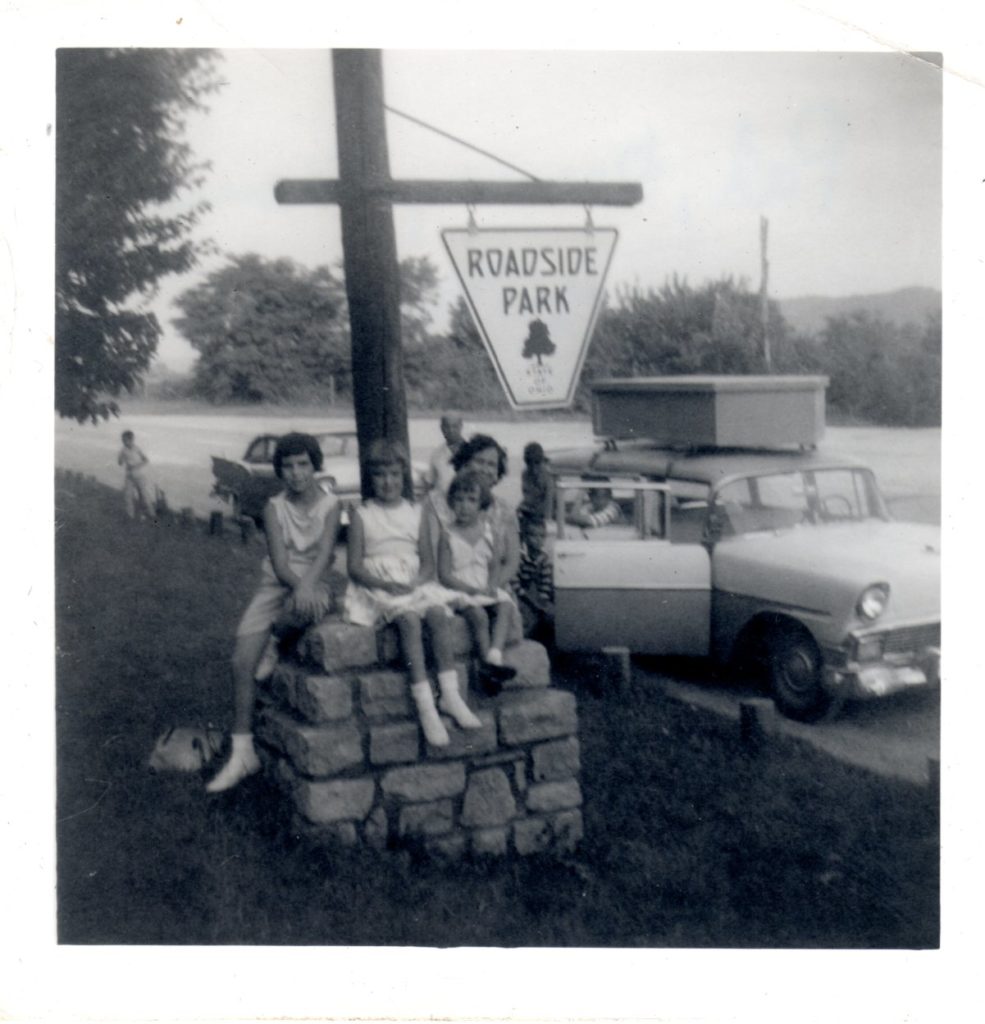Last month I signed books at a book store in Ironton, OH. My novel Not on Fifth Street is set in that town. The novel is about the 1937 Ohio River flood that devastated riverfront towns in thirteen states, including my home town of Cincinnati. Friends ask why I chose to set the story in Ironton, when I have lived my entire life in Cincinnati.
The answer to that is easy. Ironton is where my father grew up. I was born well after the flood, but my father lived through it—in Ironton. He talked of it often when I was a kid.
 Going back to Ironton always fills me with memories. My siblings and I spent many summer days in Ironton when we were young, visiting with Grandma Cannon and aunts, uncles, and cousins. Grandma’s house on North Fifth Street is a place I knew well and setting the book there came quite naturally.
Going back to Ironton always fills me with memories. My siblings and I spent many summer days in Ironton when we were young, visiting with Grandma Cannon and aunts, uncles, and cousins. Grandma’s house on North Fifth Street is a place I knew well and setting the book there came quite naturally.
I am the third of seven siblings. A family vacation with nine family members was a daunting (and expensive) undertaking when we were kids, so while friends at school talked about summer trips to the Rocky Mountains, Florida beaches, or Disneyland, our annual vacation was to Ironton. If anyone felt we were being short changed, we never did. We anticipated that vacation as much as we did Christmas.
We each had to have our one allotted suitcase packed the night before. We carried them out to the front yard on the morning of departure while Dad assembled the “boat,” our term for the wood luggage carrier he had made for the roof of the family station wagon. We watched excitedly as he lifted each bag into the boat, eyeballing, rearranging, sometimes taking everything out to begin all over again.
Squeezing in every piece took the skill of a jigsaw-puzzle pro, because we often tried to bring along more than would fit in that one allotted suitcase. Dad would ask, “Do you really need that hairdryer?” or “Can you leave your saxophone behind?” (For the record, the saxophone won out over the hairdryer.) Though loading the carrier tried Dad’s patience, it only built up our eagerness.
Once on the road, the drive seemed long, and we played car games like Travel Bingo or license plate hunting. We stopped midway to eat a packed picnic lunch at the same roadside rest every year. One time we were side tracked by carburetor issues and ate in a small grassy area near the garage that handled the repair.
In Ironton, the seven of us were parceled out to different aunts and uncles who had kids our age. We often got together during the day for a trip to Lawco Lake or the farm of a family friend who had a pool.
It wasn’t Disneyland, but our vacations weren’t about what we did. They were about who we did it with. Our close relationships with our Ironton cousins last to this day, and I cherish getting together with them whenever I can.
Good times come to an end, but people we love stay in our hearts forever.


